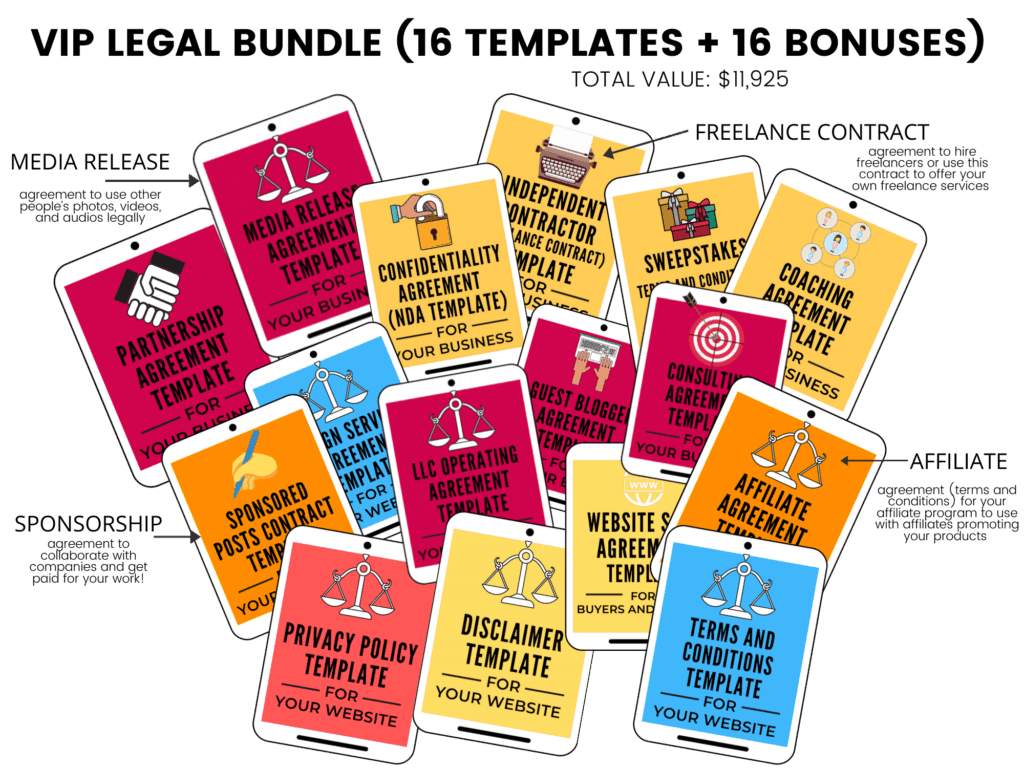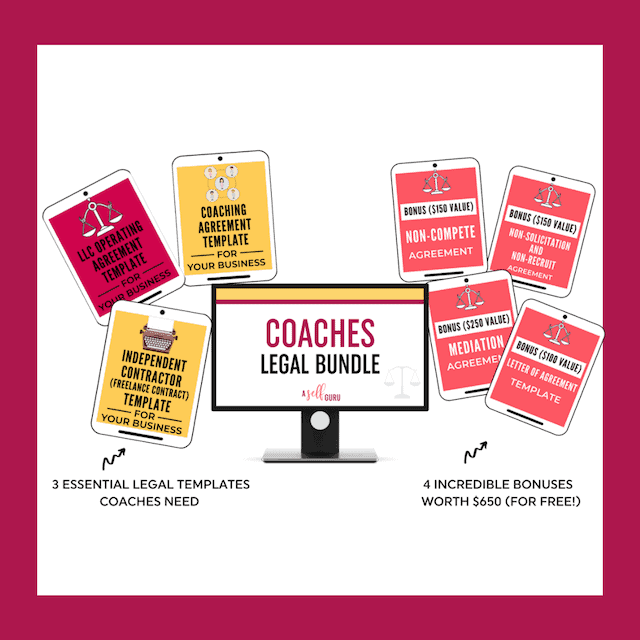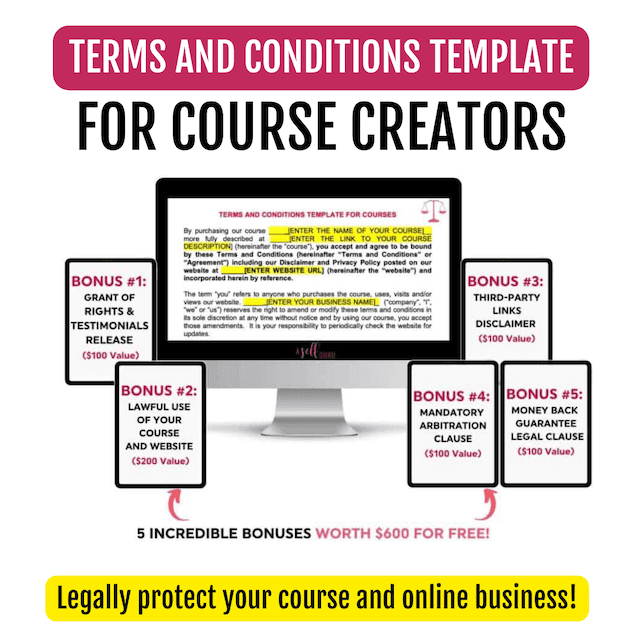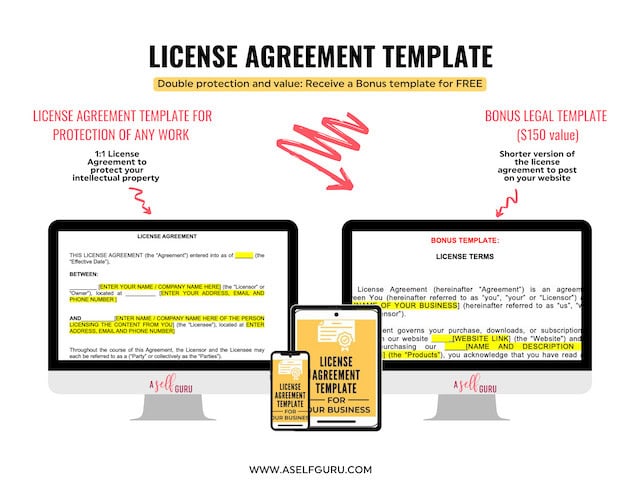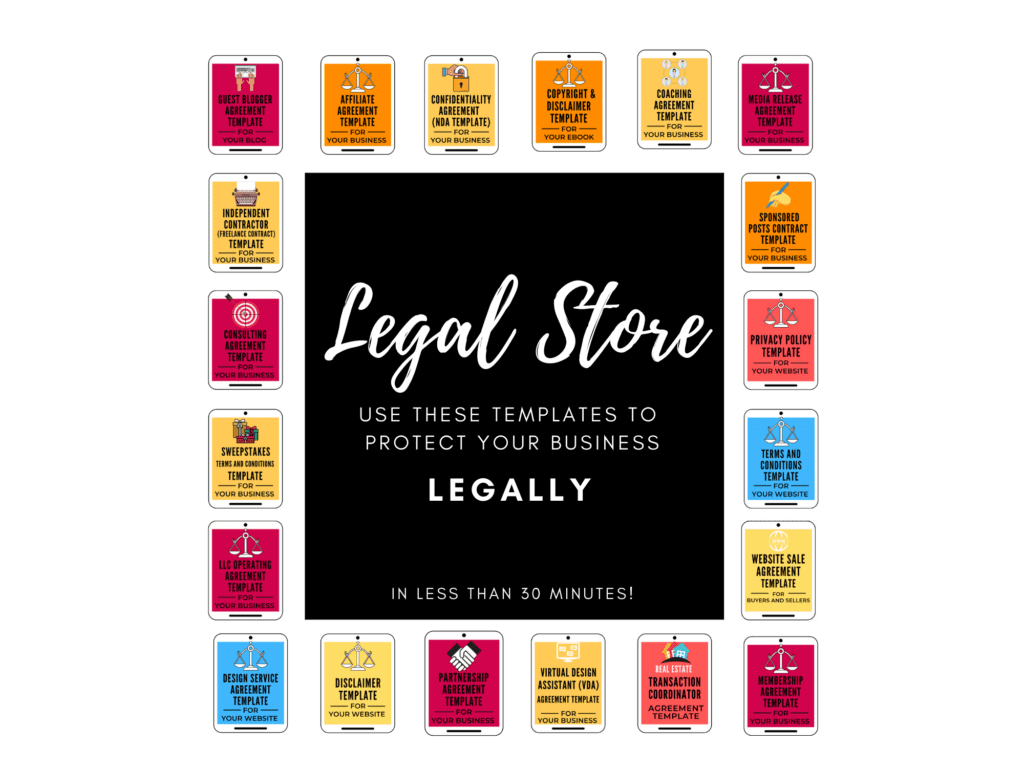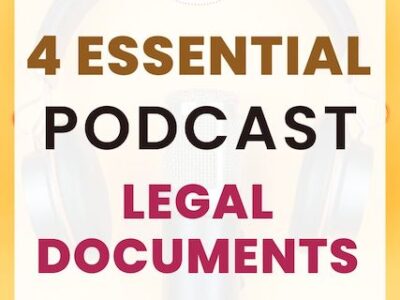How to buy a car without legal risks?
With all the excitement about car-buying, it’s easy to have emotional decisions take over the driving seat and short-circuit many critical checkpoints that ensure not only are you buying a car but also buying peace of mind.
Notably, as more new and used cars are sold, questions about legal risks have emerged.
One recent study reveals that almost 30% of all used car transactions are concerned with their history or documentation.
So, how do you make your new set of wheels bring joy and not headaches in this ever-changing marketplace?
Let’s get into the roadmap for risk-free car buying, emphasizing legal security.
In this guide, we’ll explore crucial steps to take when buying a car, from understanding essential paperwork to negotiating prices and dealing with dealerships or private sellers.
Table of Contents
Top 3 Legal Risks Associated with Buying a Car
A car with a clean legal record is lien-free, loan-free, or any other encumbrance that may affect your ownership and legal rights.
It has not been stolen or participated in illegal activities, and its documentation accurately shows its condition and history.
You can ensure that doesn’t happen by verifying the legal status of a vehicle on official sources or websites such as Stat.vin, which conduct a vin check to provide a detailed vehicle’s history.
This will protect you from likely legal complications and make your purchase as secure as possible.
Firstly, one of the main legal risks is purchasing a car with undisclosed or hidden damages such as a prior major accident.
This can lead to costly repairs and even safety hazards for both the driver and passengers.
To avoid this risk, it is important to thoroughly inspect the vehicle before making a purchase and have a trusted mechanic do an inspection as well.
Another risk is dealing with unethical or fraudulent sellers who may try to deceive buyers by misrepresenting the condition of the car or charging hidden fees.
It is important to research the seller and their reputation before making any purchases, and always read through all contracts and agreements carefully before signing.
Financing terms can also pose legal risks. It is important to fully understand the terms of the loan or lease agreement, as well as any additional fees or charges that may be included.
Failure to make timely payments or defaulting on a loan can result in repossession of the vehicle and damage to your credit score.
Additionally, there are laws and regulations in place to protect consumers when buying a car.
These include consumer protection laws, lemon laws, and truth-in-lending acts.
Being aware of these laws and understanding your rights as a buyer is crucial in avoiding potential legal issues.
Pro tip: You can use this AI tool to create content 10x faster.
Related Post: How to Protect Rental Car Business Legally
Car Buying Legal Paperwork
Car buying involves a mountain of paperwork, and understanding each document is essential to avoiding legal risks.
You’ll encounter various forms, including the bill of sale, vehicle history report, and title transfer documents as per your state law.
Knowing what each document entails can save you from potential pitfalls.
Start with the bill of sale, which outlines the terms of the sale and serves as proof of your purchase.
This document is crucial for transferring ownership and protecting your legal rights as the new owner. Make sure all the details are accurate, including the purchase price and vehicle identification number (VIN).
Next, obtain a vehicle history report to uncover any hidden surprises, such as accident history or past ownership issues.
This report provides valuable insights into the car’s past and can influence your purchasing decision.
Lastly, ensure the title transfer process is completed correctly to officially become the car’s owner and avoid any future disputes.
Related Video – How to File your BOI report for LLC
The Checklist for Risk-Free Car Buying
Do Your Homework and Know What You Want
First, outline your needs concerning the car: make, model, year, and all indispensable features.
Being specific will streamline your search process and save you oodles of time.
Consider factors like fuel efficiency, safety features, and overall dependability.
You will be able to cut out variants that will not do and save some precious time.
Begin by considering your lifestyle and priorities.
Do you need a compact car for city driving, or are you looking for a spacious SUV for family trips?
Make a list of must-have features, such as fuel efficiency, safety ratings, and technology options.
This will help narrow down your choices and guide your search.
Once you’ve identified your preferences, research different makes and models to compare prices and reliability.
Websites like Edmunds and Kelley Blue Book are valuable resources for gathering information and reading reviews from other buyers.
By investing time in research, you’ll be better equipped to make an informed decision and avoid buyer’s remorse.
- FYI: Whether you are a WordPress beginner, looking to grow your established WordPress blog, or scaling up to Enterprise WordPress needs, this may be one of the best Managed WordPress Hosting decisions you can make.
Research the Market
For market research, once you know what you are looking for, dive into it.
Understand your chosen model’s price ranges, recent car sales, availability, and joint issues.
Compare listings across different platforms to get a sense of fair pricing.
Additionally, check for reviews and feedback from current owners to identify recurring problems that could affect your decision.
Check the Vehicle’s History Report
The vehicle history report is an indispensable tool in your quest for a risk-free purchase.
Companies offering highly detailed ownership and accident history, mileage verification, and more include Carfax and AutoCheck.
By the way, here are 11 steps to follow after a car accident.
This must be addressed in a world where nearly one in four cars has some adverse history.
For instance, with BMW M4 on Copart, after you have identified a model, you can request a history report showing whether the car has been in an accident or any pending legal issues against it.
By thoroughly reviewing this information, you can make an informed decision and avoid potential risks.
Pre-purchase Inspection
You should only consider purchasing a used car with its condition inspected by a qualified mechanic.
Such an inspection may reveal underlying problems that are not otherwise evident to you, thus ensuring that its actual physical condition fits your expectations and those described by the seller.
This way, you can plan any repairs or maintenance that are likely to come due soon rather than later getting caught off guard with an added expense you had yet to plan on.
A mechanic will also be able to assess the car’s overall safety, including very critical systems such as brakes, suspension, and engine components.
Legal Documentation Review
Ensure all the legal paperwork is available and correct, such as the car title, service history, and any manufacturer warranties.
Check that the VIN number in the paperwork is correct and matches the one on the vehicle to prevent fraud.
In a private sale, it is very important to check the seller’s identity and right to sell legally; this may avoid disputes about the car’s ownership later on.
Secure Payment Methods
Payment security is most important.
So choose a secure transaction method that leaves a record of the transaction.
If possible, avoid a cash transaction, as these provide minimal security and no transaction history.
Using methods like bank transfers, certified checks, or escrow services ensures that both parties are protected and can resolve potential disputes with documented proof of payment.
- FYI: Whether you are a WordPress beginner, looking to grow your established WordPress blog, or scaling up to Enterprise WordPress needs, this may be one of the best Managed WordPress Hosting decisions you can make.
The Buyer’s Guide: Dealerships vs. Private Sellers
Buying from a car dealership generally offers more security and fewer legal risks since strict trade laws bind them.
However, they are commonly more expensive.
Whatever route you take, diligence in following the above checklist remains important.
When Buying from a Car Dealership
-
Reputation Matters: Research through the internet the dealership’s online reviews and consumer reports.
-
Certification Programs: Consider certified pre-owned, as they are still under dealer warranty or manufacturer’s warranty and have been inspected for good condition.
When Buying from a Private Seller
-
Check Identity and Ownership: Make sure the seller owns the car and is in a legitimate position to sell the used vehicle.
-
Be Thorough: Use the checklist conscientiously, as much of the consumer protection a dealer provides is absent in a private sale.
Dealerships offer the advantage of warranties and a wider selection of vehicles.
They may also provide financing options, making the purchasing process more convenient.
However, dealerships often come with higher prices and additional fees, so it’s essential to read the fine print and negotiate effectively.
On the other hand, buying from a private seller can result in lower prices and more room for negotiation.
However, this option requires thorough due diligence, as private sales typically don’t include warranties or legal protections.
When dealing with a private seller, always perform a vehicle inspection and request a history report to protect yourself.
How to Spot Red Flags and Avoid Scams
The car-buying world is not without its share of scams and fraudulent sellers.
Being able to spot red flags can save you from falling victim to a scam and losing your hard-earned money.
This is especially important for first-time buyers who may not be familiar with common tactics used by scammers.
One of the most common red flags is a seller who is unwilling to provide a vehicle history report or allow a third-party inspection.
These actions can indicate hidden issues with the car that the seller is trying to conceal.
Always insist on a thorough inspection and history report before proceeding with the purchase.
Another red flag is a deal that seems “too good to be true.” If the price is significantly lower than market value, it’s important to question why.
Scammers often use enticing prices to lure in unsuspecting buyers. Trust your instincts, and don’t rush into a decision without verifying the details.
Use technology to your benefit, and research your desired vehicle for common problems and recall notices.
- By the way, did you know that this all-in-one business tool can run your entire business online? You will be blown away!
First-Time Car Buyers vs. Veterans
While the buying approach may differ for first-time buyers and veterans, the pillars upon which a risk-free purchase is founded remain the same.
Veterans may have an edge in negotiation and sometimes even knowledge of the process, but first-timers can bring fresh vigilance and thoroughness to bear.
A diligent and informed approach to car buying helps both.
Inspecting the Vehicle
Before finalizing your purchase, conducting a thorough inspection of the car is essential to avoid legal risks and unforeseen expenses.
This step ensures that you’re aware of the car’s condition and can negotiate any necessary repairs with the seller.
Start by examining the exterior for signs of damage, such as dents, scratches, or rust. Check the tires for wear and ensure they have adequate tread. Next, move to the interior and test all the features, including the air conditioning, radio, and lights.
Under the hood, inspect the engine for leaks, corrosion, or other visible issues. If you’re not confident in your ability to assess the car’s mechanical condition, consider hiring a professional mechanic to perform a comprehensive inspection.
This investment can save you from costly repairs down the road.
Also, check for vehicle warranties to see if it’s a good deal.
Related Video: Is it legal to use AI in business?
Understanding Financing Options
For many buyers, financing is a crucial part of the car-buying process.
Understanding your financing options can help you make a financially sound decision and avoid legal risks associated with predatory lending practices.
Start by assessing your budget and determining how much you can afford to spend on a car.
This will guide your financing choices and prevent you from taking on more debt than you can handle.
Consider pre-approval from a bank or credit union to understand your loan options before visiting a dealership.
When exploring financing options, compare interest rates and loan terms from multiple lenders to ensure you’re getting the best deal.
Pay attention to the fine print and any fees associated with the loan.
By doing your homework, you’ll have the confidence to choose a financing option that aligns with your financial goals.
The Role of Insurance in Car Buying
Car insurance is a crucial component of the car-buying process, providing financial protection in the event of an accident or theft.
Understanding your insurance needs and options can help you make informed decisions and avoid potential legal risks.
Begin by researching the types of coverage available, including liability, collision, and comprehensive insurance.
Each type offers different levels of protection, so it’s important to assess your needs and budget.
Many states require a minimum level of coverage, so be sure to understand the legal requirements in your area.
When selecting an insurance policy, compare quotes from multiple insurance companies to find the best rate.
Look for factors such as deductibles, coverage limits, and customer service.
A good insurance company and policy provides peace of mind, knowing that you’re financially protected in the event of an accident.
Pro tip: You can use this AI tool to create content 10x faster!
Taking a Test Drive
The test drive is a critical step in the car-buying process that allows you to assess the vehicle’s performance and comfort.
Taking the time to test drive a car can help you make an informed decision and avoid potential legal risks.
During the test drive, pay attention to how the car handles and performs in different driving conditions.
Test the brakes, acceleration, and steering, and listen for any unusual noises. This is your opportunity to evaluate the car’s comfort and features, ensuring it meets your needs.
Don’t rush the test drive—take your time to explore the car’s capabilities and ask the seller any questions you may have.
By thoroughly assessing the vehicle, you’ll have the confidence to make a purchase decision that aligns with your expectations.
The Final Steps to Buying a Car
Once you’ve completed your research, inspections, and negotiations, it’s time to finalize the purchase.
This final stage of how to buy a car without legal risks involves completing the necessary paperwork, transferring the title, and ensuring you’re fully prepared to drive off in your new car.
Start by reviewing all the documents one last time, ensuring accuracy and completeness.
Sign the bill of sale and any financing agreements, and keep copies for your records.
Next, complete the vehicle title transfer process to officially become the car’s owner.
Before driving away, verify that your insurance policy is active and that you have the necessary license plates and registration. These steps ensure you’re legally protected and ready to enjoy your new vehicle.
FAQ on How to Buy a Car Without Legal Risks
Below are answers to questions about how to legally buy a car.
How do I buy a new car and not get scammed?
To avoid getting scammed when purchasing a new car, do your research and be cautious throughout the entire buying process.
Here are 7 tips to help you navigate through the car-buying process and avoid potential scams:
- Research the seller: Before making any purchases, thoroughly research the seller or dealership’s reputation. Look for reviews and feedback from previous customers, and ask for recommendations from friends or family.
- Inspect the vehicle: Take the specific vehicle for a test drive. Don’t rely solely on the seller’s description of the car. Take the time to inspect the vehicle thoroughly, both visually and mechanically, preferably with a trusted mechanic.
- Get everything in writing: Make sure all agreements, terms, and conditions are clearly stated and put in writing. This includes the purchase price, financing terms, written warranty, and any additional fees.
- Understand the financing terms: If you are financing the car, make sure you fully understand the terms of your loan or lease agreement before signing anything. Ask for clarification on any unclear terms or conditions.
- Beware of hidden fees: Read through all contracts carefully to ensure there are no hidden fees or charges that may be added later on the car loan.
- Be wary of high-pressure sales tactics: If a seller is pressuring you to make a quick decision or sign a contract without giving you time to review it, this could be a red flag for potential scamming tactics.
- Know your rights: Familiarize yourself with consumer protection laws, state laws, lemon laws, and truth-in-lending acts to understand your rights as a buyer.
By following these tips and being cautious throughout the buying process, you can avoid potential scams and ensure a smooth and legal car purchasing experience.
How to legally protect yourself when buying a car
Below are 7 ways to legally protect yourself when buying a car:
-
Sales Agreement: When purchasing a vehicle from a dealership or private seller, an effective sales contract or service contract should always be in writing, stating the condition of the car, the sale price, and the warranty coverage.
-
Lemon Laws: Understand your state’s lemon laws, which may cover you when buying a vehicle with undetected defects.
-
Inspect the vehicle: Thoroughly inspect the vehicle before making a purchase. If possible, get a professional mechanic to inspect it as well if it’s a used vehicle. Make sure to document any existing damages or issues in writing.
-
Obtain a vehicle history report: As mentioned earlier, obtaining a vehicle’s history report is crucial in understanding its past ownership and any potential issues that may not be visible during inspection.
-
Consider using escrow services: If buying from an online seller or through auction sites, consider using escrow services that hold your money until you receive the car and are satisfied with the purchase.
- Auto insurance: Make sure to have auto insurance coverage in place before purchasing a car. Proper liability insurance will protect you financially in case of any accidents or damages.
Should I go to the bank before buying a car?
It’s a good idea to go to the bank or a financial institution before buying a car to secure financing or a down payment.
This will help you determine your budget and understand what type of auto loan you may qualify for.
It also allows you to compare rates from different lenders and potentially negotiate better terms with the dealership.
It is always wise to have a pre-approved loan in hand before entering negotiations with a seller, as it gives you more bargaining power and can protect you from being offered high-interest loans at the dealership.
Additionally, having a pre-approved loan can speed up the purchasing process, giving you more time to focus on other important aspects of buying a car such as inspecting the vehicle and negotiating its price.
If you’d like to rank your blog posts on the FIRST page of Google then I highly recommend using this amazing SEO tool from day one! Learn more by watching the video here.
What not to tell a used car dealer?
When negotiating with a used car dealer, you should be cautious about the information you share.
Here are 4 things you should avoid telling a used car dealer:
- Your budget: Revealing your maximum budget can limit your negotiation power and may result in the seller trying to push you toward a more expensive option.
- How much you love the car: Showing too much enthusiasm for a particular vehicle may give the seller leverage to charge a higher price.
- That you need a car urgently: If the seller knows that you need a car right away, they may use this as an opportunity to pressure you into making a quick decision or paying more than necessary.
- Any personal or financial information: This includes your credit score, income, and other personal details. Keep the negotiation focused on the car and avoid discussing your personal finances.
Overall, it is important to maintain a level of caution and not reveal too much information during negotiations with a used car dealer.
Stick to discussing the vehicle’s condition, price, and bill of sale.
Remember that you have the power to walk away from any deal if it does not meet your needs or feel suspicious.
Trust your instincts and make sure all agreements are put in writing before finalizing the purchase.
What are the risks of buying a car without test driving?
Buying a car without test driving can be risky and may result in unexpected issues after the purchase.
Here are 4 potential risks of not test-driving a car before buying it:
- Hidden mechanical issues: A test drive allows you to identify any potential mechanical problems with the vehicle, such as engine noises or transmission issues. Without test driving, these issues may go unnoticed until after the purchase.
- Comfort and fit: Test driving a car also gives you a chance to see if you feel comfortable and at ease while driving it. You may find that the seats are uncomfortable or that there isn’t enough legroom for your liking, which can affect your overall satisfaction with the vehicle.
- Handling and performance: Each car has a unique handling and driving experience. Without test driving, you may end up with a car that doesn’t meet your expectations in terms of performance and handling.
- Hidden damage or defects: Test driving allows you to thoroughly inspect the vehicle for any hidden damage or major issues that may not be visible in photos or descriptions. This can save you from potential future expenses on repairs.
Ultimately, it is important to test drive a car before buying it to make an informed decision and ensure that the vehicle meets your needs and expectations.
What are the top mistakes to avoid when buying a car online?
Knowing how to buy a car without legal risks involves avoiding some common mistakes. Below are 6 top mistakes to avoid when buying a car online:
- Skipping the inspection: It is important to thoroughly inspect the vehicle, both inside and out, before making a purchase. Don’t solely rely on online listings or photos, as they may not accurately depict the condition of the car.
- Not doing enough research: Before buying a car online, be sure to do your research on the seller and their reputation. Read reviews and feedback from previous buyers to ensure that you are dealing with a reputable seller.
- Falling for too-good-to-be-true deals: Be cautious of extremely low prices or deals that seem too good to be true. These could be red flags for potential scams or hidden issues with the vehicle.
- Not getting a vehicle history report: It is important to obtain a vehicle’s history report using the vehicle identification number before making a purchase. This will provide information on the car’s previous ownership, accident, and damage history, repair records, and other important details.
- Not having financing in place: If you plan on financing your car purchase, it is important to have pre-approved loans in place before making any commitments. This will help you understand your budget and prevent you from being pressured into high-interest loans at the time of purchase.
- Ignoring hidden fees or additional costs: When buying a car online, be aware of potential hidden fees or additional costs that may not be included in the initial price.
Final Thoughts on How to Buy a Car Without Legal Risks
Now you know how to buy a car without legal risks.
A car is a worthy investment. As vehicle owners, understanding these legal risks will help prevent problems that might occur in the future.
Through your research, vehicle history reports, demand for pre-purchase inspections, scrutiny of all legal documents, and selected methods of safe payments, you can evade most risks.
Remember that it’s either dealing with a dealer or a private seller, and the rights and responsibilities in the transaction process must be at the front.
It is more important than ever, in an era when convenience can sometimes trump caution, to take the time to make sure you are making a legally secure and sound purchase at a reasonable price.
Related Posts on How to Buy a Car Without Legal Risks
In addition to learning about how to create a legally compliant website, you should join my Facebook group here to connect with me and other entrepreneurs.
This blog offers many legal tips for entrepreneurs here.
Check out more helpful blog posts next:
15 Documents Needed to Sell a Business
Blog Disclosures and Disclaimers: Examples and Template You Need
Lawyer’s Guide on AI Disclaimer for Website (+Template)
Creating a Website From Scratch: 13 Essential Steps
13 Best Contracts for Creatives
23 Legal Tips for Small Business from a Lawyer
16 DIY Legal Templates Entrepreneurs Need
11 Key Contract Clauses You Must Know
VISIT THIS FREEBIES PAGE TO GET 5 AWESOME FREE BUSINESS, BLOGGING, AND LEGAL TIPS!
Below are some more helpful blog posts, legal tips, tools, and resources that you should check out next:
- Beautiful Pinterest templates to increase traffic to your blog!
- What’s an LLC and when to form one?
- How to Legally Protect Your Book (with Proper Copyright Notice and Disclaimer Examples)
- AI writing tool to write blog posts 10x faster, create social media content, videos, and any kind of content to save time in business
- This SEO tool makes sure your blog posts rank on the first page of Google!
- Manage your accounting effortlessly with this amazing tool.
- Is your website breaking this law? Prevent costly ADA lawsuits with this bundle.
MORE TOOLS TO GROW YOUR ONLINE BUSINESS
- TubeBuddy to grow your YouTube channel, and this is another great tool for YouTube SEO.
- Free SEO Masterclass to learn how to optimize your blog posts for SEO to rank on Google. You can also buy this awesome bundle of ebooks instead if you prefer ebooks over video training.
- Best accounting software to manage profit and loss and more!
- Best payroll service (super affordable too)
- A great all-in-one business platform for hosting your course, email communications, sales pages, and more!
- This paraphrasing tool to create original work for the client
- A professional theme for your website
- Millionaire blogger’s secrets here and tons of valuable resources.
- How to start your blogging business and make money online
- How to make money from affiliate marketing.
- The Best Freelance Writing Contract Template (for writers and clients)
- Guest Blogger Agreement to publish guest posts on your website legally and avoid any copyright infringement, Media release agreement to be able to use other people’s photos, videos, audio, and any other content legally, Privacy policy on your website to ensure your blog’s legal compliance, Disclaimer to limit your legal liability, Terms and Conditions to set your blog rules and regulations! Get all of these templates at a discounted rate in one of my best-selling VIP legal bundle here.






